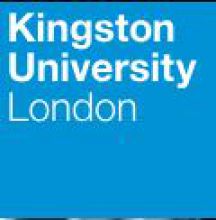Nearly half of the richest applicants to postgraduate degrees expect to rely on their parents for funding, while as few as one in eight students from poorer backgrounds can say the same, according to a major study.
A survey of 1,226 taught postgraduates who enrolled on science, technology, engineering and mathematics courses at 11 UK universities last year found that 41.2 per cent of students from the most affluent families said that their parents would be their main source of funding.
In contrast, the results for students from the least privileged backgrounds were as low as 12.8 per cent.
These students were much more likely to rely on their own savings or personal income, and were also more likely to take out loans to fund their studies.
Researchers at Kingston University argue that their study, conducted mainly in post-92 institutions but also including the University of Edinburgh, demonstrates how students from poorer backgrounds are being marginalised from postgraduate study.
Lack of funding was one of the key reasons why students dropped out of the application process, and those who did start courses were more likely to say that they regarded fee levels as being very important if they were from a poorer background.
Some 61.7 per cent of the UK students aged under 25 who were included in the sample had study debts of between £15,000 and £25,000 before enrolling on their master’s, and all of these completed their undergraduate studies prior to the introduction of higher tuition fees.
Of 930 postgraduates who took part in a second survey, one in five UK-domiciled learners expected to have total study debts in excess of £30,000 by the end of their master’s.
About one in four of the students said that they had had problems paying accommodation or utility bills, and one in five said that they had struggled to pay for food.
But the students in the second survey were unconvinced that the government’s proposal to introduce loans of £10,000 for taught postgraduates would do much to reduce inequality.
Only 13.5 per cent said that the government’s proposal would be the most viable funding option for them, with 62.2 per cent backing a package that included a scholarship or fee discount instead.
Michelle Morgan, learning and teaching coordinator in Kingston’s Faculty of Science, Engineering and Computing, said that prospective postgraduates who had paid £9,000 fees at undergraduate level were likely to feel financial pressures even more keenly.
“It is very disconcerting and it is very worrying,” she said. “The funding issues are creating stratification and disadvantage, and I do not believe that they are creating access.”
Seventy per cent of the 1,226 students surveyed felt that their master’s would improve their employment prospects but nine companies questioned for the project said that work experience was more important to them in assessing candidates.
POSTSCRIPT:
Print headline: Poorer applicants ‘disadvantaged’ in postgrad funding struggle
Register to continue
Why register?
- Registration is free and only takes a moment
- Once registered, you can read 3 articles a month
- Sign up for our newsletter
Subscribe
Or subscribe for unlimited access to:
- Unlimited access to news, views, insights & reviews
- Digital editions
- Digital access to THE’s university and college rankings analysis
Already registered or a current subscriber? Login








